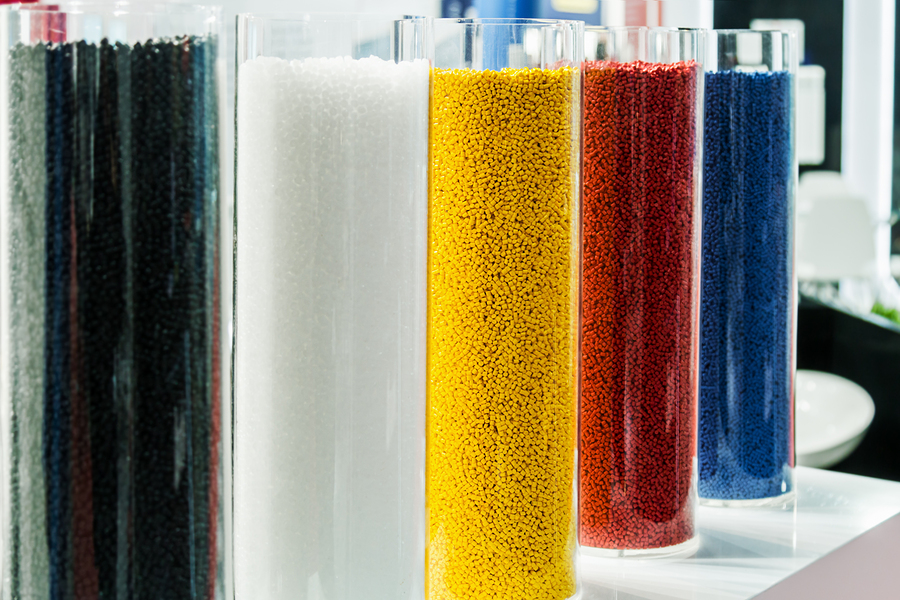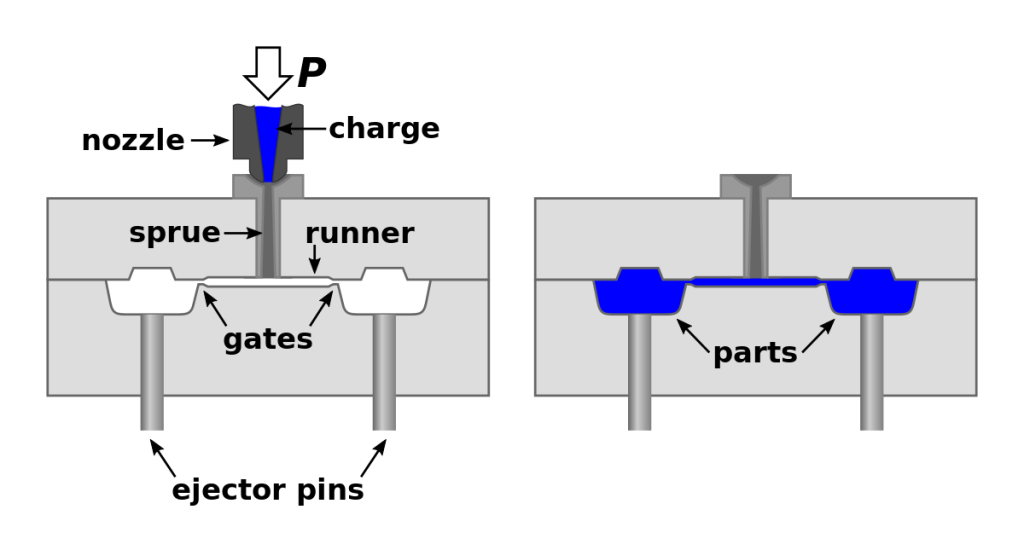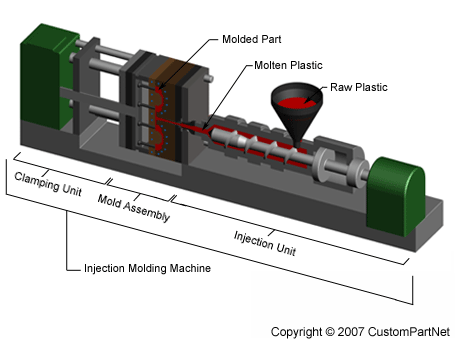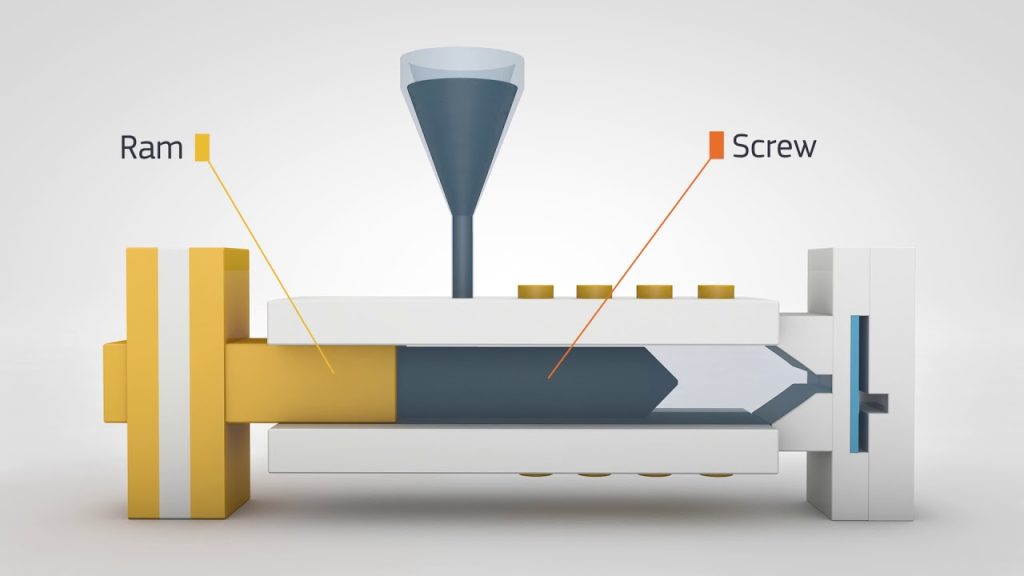Table of Contents
- Can Polypropylene Be Injection Molded?
- Frequently Asked Questions
- 1. Can polypropylene be injection molded?
- 2. What are the advantages of using polypropylene for injection molding?
- 3. What are the disadvantages of using polypropylene for injection molding?
- 4. What factors should be considered when designing a polypropylene product for injection molding?
- 5. What are some common applications for polypropylene injection molding products?
Polypropylene is a versatile and popular thermoplastic material used in a wide range of applications, from packaging to automotive parts. However, one of the most common methods of manufacturing plastic parts is injection molding. So, can polypropylene be injection molded? In this article, we will dive into the properties of polypropylene and explore its compatibility with injection molding processes.
Injection molding is a widely used manufacturing process that involves injecting molten plastic into a mold cavity. This process is used to produce high-quality and precise plastic parts in large quantities. Polypropylene is known for its excellent chemical resistance, low density, and high stiffness, making it a popular choice for injection molding. But, what are the specific considerations when it comes to injection molding with polypropylene? Let’s find out.
Can Polypropylene Be Injection Molded?
Polypropylene is a thermoplastic polymer that has been widely used in various industries due to its excellent properties. One of the most popular methods of producing polypropylene products is through injection molding. But can polypropylene be injection molded? In this article, we will explore the answer to this question and provide you with all the information you need to know.
What is Injection Molding?
Injection molding is a manufacturing process that involves the melting of plastic pellets and injecting them into a mold cavity. The plastic then cools and solidifies, forming the desired shape. This process is used to produce a wide range of plastic products, including polypropylene products.
The Injection Molding Process
The injection molding process starts with the plastic pellets being fed into a hopper. The pellets are then fed into a heated barrel, where they are melted. Once the plastic is melted, it is injected into a mold cavity using a reciprocating screw. The plastic then cools and solidifies, and the mold is opened to release the finished product.
The Benefits of Injection Molding Polypropylene
Injection molding is an efficient and cost-effective way to produce high-quality polypropylene products. Some of the benefits of using this process include:
- Ability to produce complex shapes
- Consistent product quality
- High production rates
- Reduced waste
Can Polypropylene Be Injection Molded?
Yes, polypropylene can be injection molded. In fact, polypropylene is one of the most commonly injection molded materials due to its excellent properties. Polypropylene has a low melting point, which makes it easy to melt and mold. It also has a high stiffness and strength-to-weight ratio, making it ideal for use in a wide range of applications.
The Properties of Polypropylene
Polypropylene has several properties that make it an excellent material for injection molding. These properties include:
- Low density
- High stiffness and strength-to-weight ratio
- Excellent chemical resistance
- Good impact resistance
- Low moisture absorption
Polypropylene vs. Other Materials
Polypropylene is often compared to other materials, such as ABS and polycarbonate. While each material has its own unique properties, polypropylene offers several advantages over these materials. For example, polypropylene is more cost-effective than polycarbonate and has a lower density than ABS.
Conclusion
In conclusion, polypropylene can be injection molded and is an excellent material for this process. Its low melting point and high stiffness and strength-to-weight ratio make it ideal for producing high-quality products. Injection molding is a cost-effective and efficient way to produce polypropylene products, and with its excellent properties, polypropylene is sure to remain a popular choice for injection molding applications.
Frequently Asked Questions
Polypropylene is a thermoplastic polymer that is commonly used in manufacturing processes. One of the most popular methods of producing polypropylene products is through injection molding. Below are five common questions and answers about the injection molding process for polypropylene.
1. Can polypropylene be injection molded?
Yes, polypropylene is a popular material for injection molding due to its low cost, versatility, and durability. Injection molding is a manufacturing process that involves melting plastic and injecting it into a mold to create a specific shape or product. Polypropylene can be easily melted and molded into various shapes and sizes using this process.
Additionally, polypropylene is resistant to chemicals, heat, and impact, making it a suitable material for a wide range of products, including automotive parts, medical devices, and household items such as containers and toys.
2. What are the advantages of using polypropylene for injection molding?
There are many advantages to using polypropylene for injection molding. Firstly, it is a lightweight material that is easy to handle and transport. It is also resistant to chemicals, heat, and impact, making it suitable for a wide range of applications.
Furthermore, polypropylene is a low-cost material that is readily available, making it an economical choice for manufacturers. Its versatility and ability to be molded into various shapes and sizes also make it a popular material for injection molding.
3. What are the disadvantages of using polypropylene for injection molding?
While there are many advantages to using polypropylene for injection molding, there are also some disadvantages to consider. Firstly, it has a lower melting point than other thermoplastics, which can make it more difficult to mold into complex shapes.
In addition, polypropylene has a lower stiffness and strength compared to other materials, which may limit its use in certain applications. Finally, it is not as resistant to UV radiation as other materials, which can cause it to degrade over time if exposed to sunlight.
4. What factors should be considered when designing a polypropylene product for injection molding?
When designing a polypropylene product for injection molding, there are several factors to consider. Firstly, the shape and size of the product should be taken into account, as this will affect the injection molding process. The complexity of the design, as well as any undercuts or thin walls, should also be considered.
The type of polypropylene used, as well as any additives or fillers, can also impact the injection molding process. Finally, the intended use of the product should be considered, as this will determine the necessary properties, such as strength, stiffness, and resistance to heat and chemicals.
5. What are some common applications for polypropylene injection molding products?
There are many common applications for polypropylene injection molding products. One of the most popular uses is in the automotive industry, where it is used for various parts such as bumpers, dashboards, and interior trims. It is also commonly used in the production of medical devices, such as syringes and surgical instruments.
Other common applications include household items such as food containers, toys, and furniture. Polypropylene injection molding products are also used in the production of electronic components, such as computer parts and appliances.
In conclusion, polypropylene can indeed be injection molded. This thermoplastic polymer is versatile and widely used in various industries because of its excellent properties, such as durability, chemical resistance, and low cost.
The injection molding process involves melting the polypropylene resin and injecting it into a mold cavity. The molten plastic then takes the shape of the mold and cools down to become a solid part. This process is efficient and can produce large quantities of high-quality parts.
Moreover, polypropylene injection molding is an eco-friendly solution as it produces minimal waste and is recyclable. It is also a preferred material for many manufacturers due to its flexibility in design and functionality.
Overall, polypropylene injection molding is a reliable and cost-effective method for producing high-quality parts. Its unique properties make it an excellent choice for a wide range of applications.
Request a quote today!
[contact-form-7 id="1578" title="Contact form"]
Please compress the file into a ZIP or RAR file before uploading. Alternatively, send through your RFQ by email.
enquires@unitymanufacture.com





